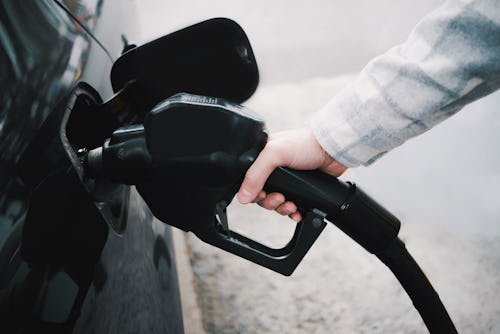A new law makes French car companies encourage people not to buy cars
It’s time to give gas-guzzlers the tobacco treatment.

Dangerous products often come with warnings on them. Cigarettes, for example, come in packs plastered with labels telling you how bad for you it is to smoke them. We know burning fossil fuels is hurting us — it causes pollution that clouds the air, has adverse effects on our health, and is destroying the planet by spewing warming-causing emissions. So isn’t it about time gasoline and the products that use it come with a warning label?
France thinks so. Last month, French lawmakers passed a rule that will require car commercials to include messages encouraging people not to drive. Any car ad will have to explicitly mention alternatives to personal cars that would burn less fossil fuel and cut down on our impact on the planet.
The ads will have to carry one of a number of approved messages, including: “For short journeys, walk or cycle,” “Think about carpooling,” or “On a daily basis, take public transport.” Some ads will also include a message encouraging people to “move without pollution.”
This won’t just apply to car ads on TV, either. France is requiring any advertisement for a vehicle — on TV, radio, online, or in print — to include one of these messages. It can’t be hidden, either; it needs to be shared in an “easily readable or audible manner,” and it needs to be “clearly distinguishable from the advertising message and from any other obligatory mention.” Failing to meet those requirements comes with a fine of up to 50,000 euros, or about $72,000.
France isn’t alone in taking this warning label approach. In 2020, the town of Cambridge, Massachusetts, introduced health and environmental warning labels on gas pumps. When people go to gas up in the city, which neighbors Boston, they are greeted with a message that reads, “Warning: Burning gasoline, diesel, and ethanol has major consequences on human health and the environment including contributions to climate change.”
Other cities, too, have toyed with this idea. Cambridge was the first to follow through with it, but Berkeley, California, had a similar proposal in 2014, though it never passed. Vancouver, British Columbia, managed to approve warning stickers in 2015, becoming the first city in Canada to do so. However, the oil industry got involved in the process and managed to get the warning watered down, so that the message the city settled on was rendered virtually meaningless (though still true): “Reducing emissions helps fight climate change.”
We are beyond the point of trying to make things more polite or friendly. The planet is warming, and our window for doing anything about it is closing. Continuing to burn fossil fuels at our current level almost certainly dooms us to a future of extreme weather, unbearable pollution, and a planet that is increasingly uninhabitable.
We need to confront this reality, and warning labels make us do exactly that every time we see an ad for a car or go to fill up our gas tank. Put the dire stuff right on the label. We need to know what our future holds if we don’t change course.